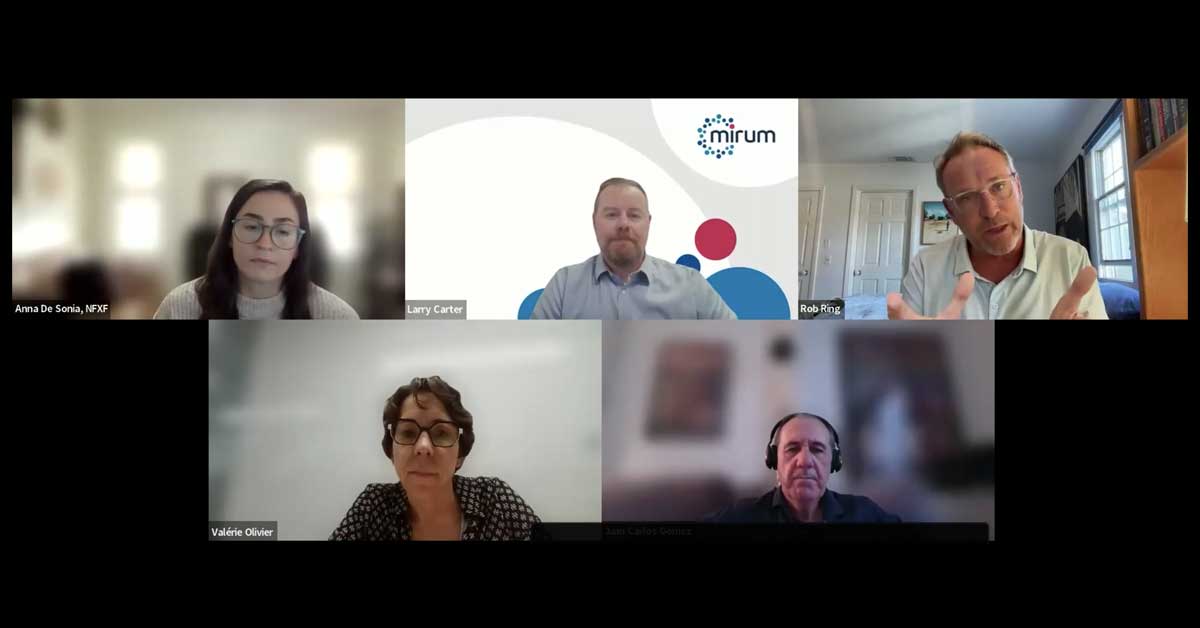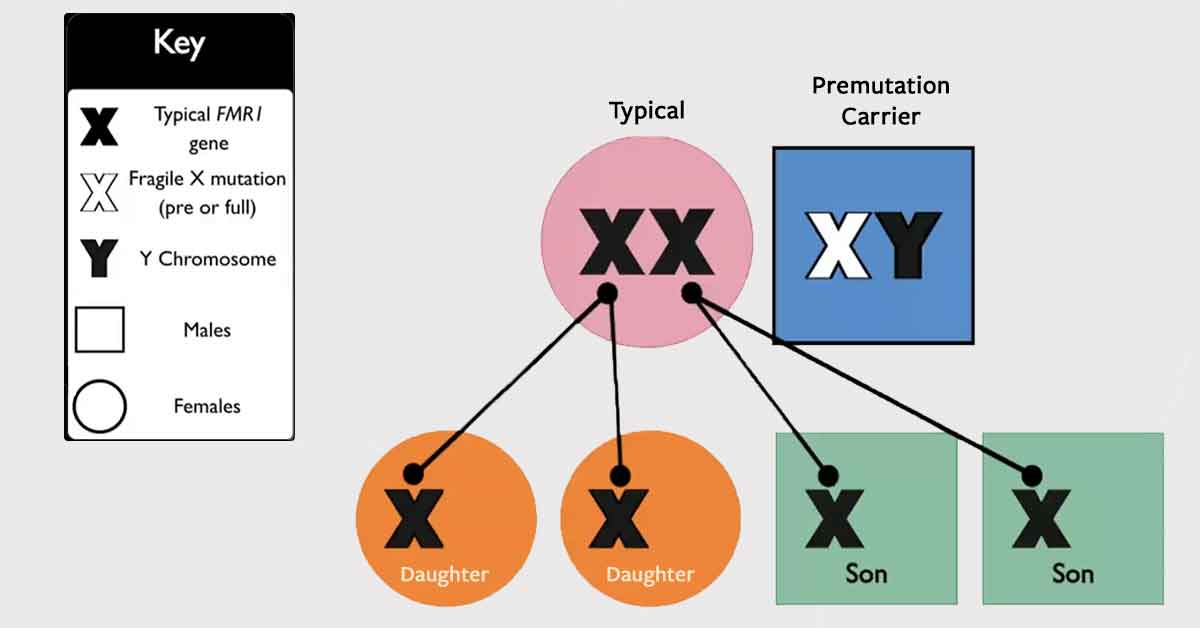1. Early Findings in a Study of Cognitive Skills in School Age Children with a Premutation: Strong Skills with Relative Language Weakness for Girls
With Veronica Hinton
Whether children with a Fragile X premutation allele (PM) may be at increased risk for having cognitive difficulties is unknown. To control for potential sample bias, children identified prenatally as either having a PM or not having a premutation were given a neuropsychological test battery with testers “blind” to the group. Results indicate age-appropriate mean test scores across all measures for all children in the PM and NP groups. Boys with a PM did not differ from NP boys on any measure, while girls with a PM showed modestly decreased scores across language measures compared to NP girls.
Recording: 0:00-14:00
2. Qualitative Interview Outcomes from Women with a Premutation Related to their Healthcare Experiences
With Emily Allen
We have conducted two studies using qualitative interviews with women with a premutation. In the first study, women were interviewed about their diagnostic experience related to Fragile X-associated primary ovarian insufficiency (FXPOI). The second study focused on the healthcare experiences of African American women with a premutation. Based on these interviews, several areas for improvement in care for women with a premutation were identified including more centralized care, improved clinical care, and increased support. In addition, inclusive educational opportunities and support groups from national organizations could serve to ease the impacts of being an African American premutation carrier.
Recording: 14:59-28:16
3. Longitudinal Analysis of Fragile X-Associated Tremor/Ataxia Syndrome Progression: A One-Year Follow-Up of 18 Patients
With Michelle Tosin
We conducted a study over one year with 18 Fragile X-associated tremor/ataxia syndrome (FXTAS) patients to determine the progression of motor signs using the FXTAS-Rating Scale (FXTAS-RS) version 2.0. Results showed a non-significant total score worsening (average 2 points), with sub-score variations. Dystonia, speech, and eye movement remained stable; bradykinesia improved, while tremors and walking-balance worsened. Although not statistically significant, these findings provide insights into FXTAS progression, emphasizing the importance of larger cohort assessments for a comprehensive understanding of the disease’s natural course.
Recording: 29:02-39:40
4. Characteristics of Tremor in Fragile X-Associated Tremor/Ataxia Syndrome and Premutation Carriers with Tremor
With Deborah Hall
This project was developed to determine the duration of tremor and related features in patients with Fragile X-associated tremor/ataxia syndrome (FXTAS) compared to premutation carriers with tremor (PreT) who do not meet the criteria for FXTAS.
Recording: 40:08-49:49








